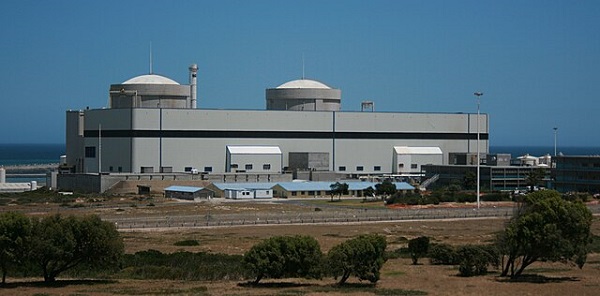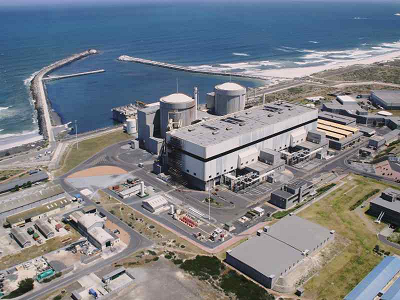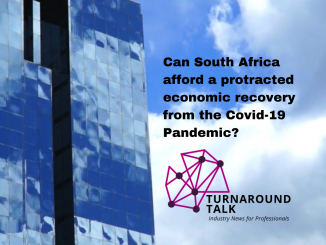

Founder: Turnaround Talk
There has been a growing narrative in South Africa that the country is tired of the Government’s empty promises. Businesses and consumers (with the financial means to do so) are taking matters into their own hands and are implementing risk management measures to decrease their reliance on the Government. This is evident in the number of solar panels one sees when one drives through domestic suburbs and the increased involvement of businesses in matters they would have previously avoided.
However, taking your destiny into your own hands is a challenging task and is not within the financial means of all South Africans. Government is also struggling to live up to its promises of allowing greater participation from the private sector when it comes to growing the economy. The reality of the situation is that the Government still holds the majority of the aces in the high-stakes poker game of economic growth. Despite this, it seems reticent to play its hand in a way that would accelerate economic growth.
Clarity, please
A News24 article points out that Government aims to release its official blueprint for how the country will produce electricity over the next decade at the end of September, Electricity Minister Kgosientsho Ramokgopa has said.
The Integrated Resource Plan 2023 will outline the state’s plans for new power plants and how much electricity is expected to cost.
The article adds that, at his regular weekend briefing on the state of Eskom, Ramokgopa said that the Department of Mineral Resources and Energy (DMRE) would draw up the plan’s energy mix.
While Ramokgopa’s office has been given the power to determine what sources of energy the country will use, he said it made sense to rely on the DMRE’s existing proposals which have been a long time in the making.
“The DMRE has been running this process … for a long time. So, we will allow that to unfold to the point that it gets out to the public domain for public comments. We don’t want to stop-start the process because suddenly powers are assigned to you,” he said.
The article points out that Ramokgopa also said that “one or two things” needed to be “firmed up” before he would give a specific date for the plan’s release. He promised to provide more details at his next briefing.
Opposition parties have been ramping up pressure on the government to release the plan, with the DA saying its release was delayed by “factional politics within the ANC”.

Image By: Getty Images
One wonders why the ANC is so fixated on only focusing on securing funding to address Eskom’s maintenance challenges while there is mounting pressure for developing economies to become more serious about renewable energy and moving towards a Net Zero Economy. Surely this should have been top of the agenda at the recently held BRICS Summit when there is ample literature to support the fact that renewables can accelerate economic growth.
Hopefully, there will be more clarity on the progress of separating Eskom’s distribution arm from the rest of the business. Public Enterprises Minister – Pravin Gordhan – has already given the green light for this to go ahead, and this change will make a massive difference when it comes to the management of inefficiencies in an arm of Eskom that has one of the biggest impacts on the country. The other arm is the financial affairs of the utility. However, as the late Desmond Tutu pointed out, the only way to devour an elephant is one piece at a time. Let’s make a success of separating the distribution arm first.
Transnet troubles
Another News24 article points out that Gordhan’s plan to radically turn around Transnet has been widely welcomed, but commentators say time is of the essence as the deterioration of the parastatal continues to take a massive toll on the SA economy.
During the release of Transnet’s annual results on Friday, in which it reported a R5.7 billion loss, Gordhan announced plans to decisively tackle the logistics parastatal’s ailing performance.
The article adds that, underscoring the urgency of the matter, the Minister has given the newly installed Transnet board just three weeks to report back on a handful of critical issues.
These include a thorough review of the executive management and whether the right people with the right skills are in place and also to identify the root causes of the inability of management and staff to meet performance targets. Gordhan has further called for a plan to transform the operational performance of each of Transnet’s business areas, including “the restructuring of the entity to more effectively and efficiently deliver on its mandate”.
The article adds that University of Stellenbosch Professor and logistics specialist, Jan Havenga, welcomed the announcement, which he said was “spot on” in its aims.
At its most basic level, Transnet simply needs to run more trains and to get the ports working correctly again. “To do that, they need to restructure [management]… that’s the only way you’re going to get private sector funding, and get the lost skills back,” he said.
The article adds that it has to be done immediately, Havenga said: There’s no more time. We’re losing a billion rand a day [due to the logistics, and especially rail, crisis]. We can’t do that. Our economy can’t afford it.

Image By:
Havenga said he was encouraged by the minister’s plan, especially when read together with other developments – like installing a new board, developing an Operation Vulindlela freight logistics roadmap, the president’s national logistics crisis committee and increased levels of collaboration.
“There’s a lot of positive things that have happened. Now we just need to make it work,” he said.
The News24 article points out that Transnet Group CEO Portia Derby said interventions would reposition the parastatal for growth in the medium-term and accelerate performance.
Cobus van Vuuren, general secretary of the United National Transport Union, said Gordhan’s mention of restructuring business divisions amid an operational turnaround is a major concern to labour.”We are hoping that he’s referring to the management team… because we know for a fact that the management structures are inflated,” he said.
“And, absolutely, we agree the management structures must be fixed.”
The article adds that he said that the blame for many of Transnet’s problems can be laid at management’s feet, but the board and government are also to blame for making poor decisions. “We should have managers in place in any state-owned enterprise, in any business, that actually can run a business profitably, ensuring that they apply due diligence and comply to their fiduciary duties, so that the business can be turned around, and the jobs can be protected.”
Divide and conquer as opposed to divide and rule
It seems as if Government is accelerating its end game of dividing SOEs into smaller operating units in an effort to try and manage performance. This is a classic business turnaround tactic as it eliminates the space for underperforming managers to hide within the business.
However, a key component of this tactic is punitive action against those who are underperforming. We cannot continue to reward mediocrity. If someone is not meeting KPIs, they must be held accountable for their actions. Business reorganisation takes time, effort and significant planning. Government can ill afford to go through this process if the status quo remains the same.
Government is making the right moves and noises when it comes to economic reform. However, it needs to realise that there is a definite timeline when it comes to implementing this reform. And it is not African Time.




